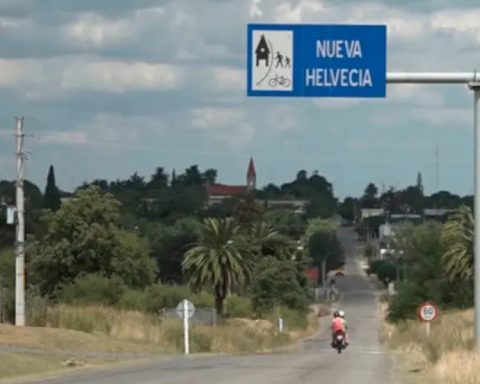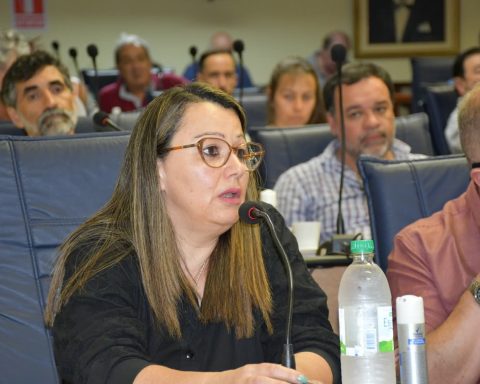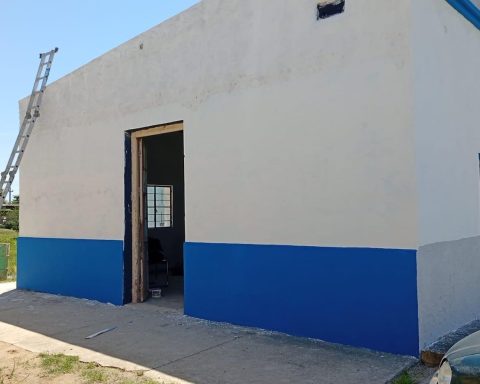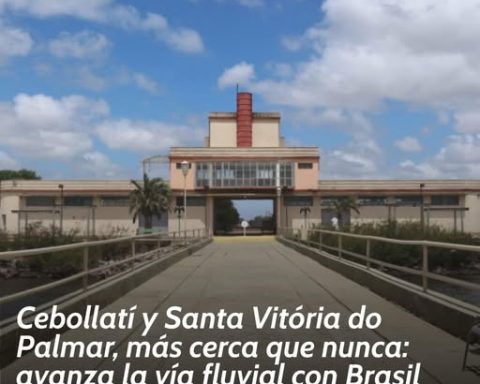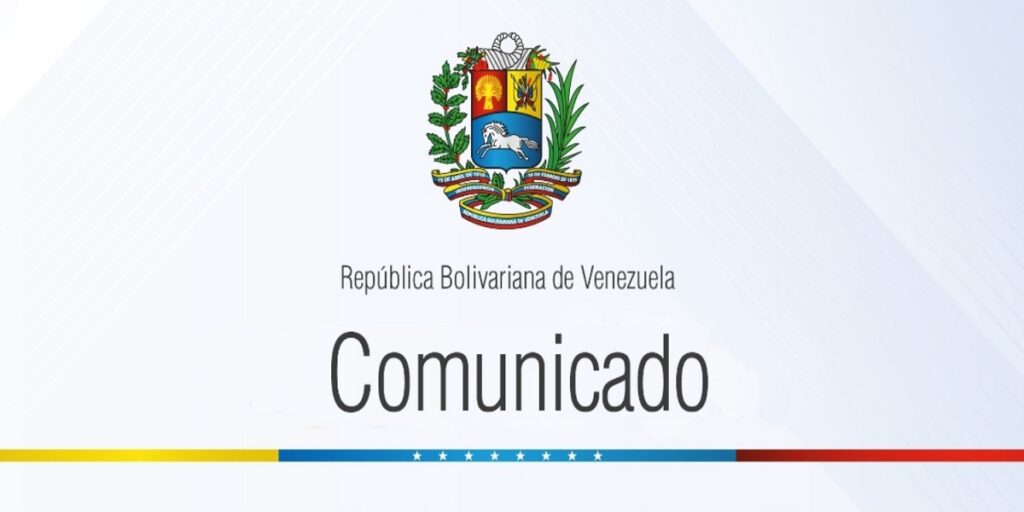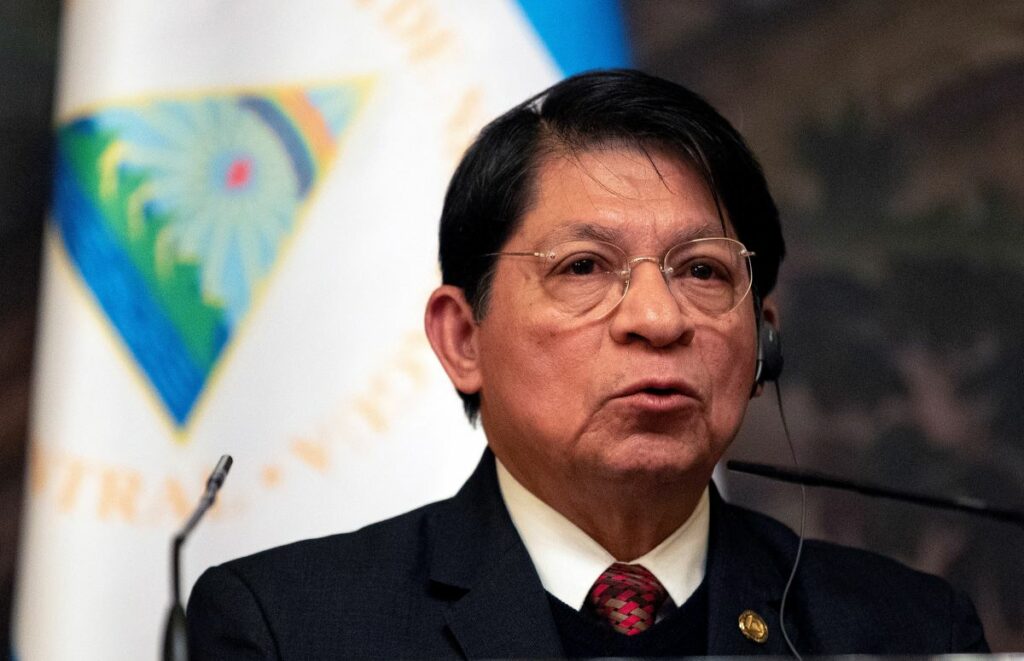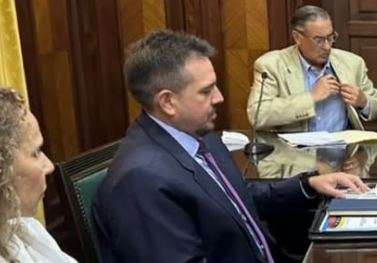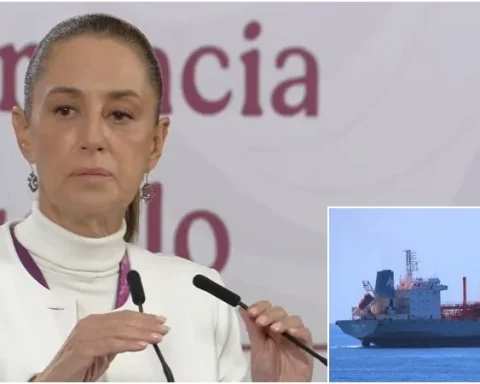In a new CERES Breakfast, its executive director, the economist Ignacio Munyo, presented the study “Clear concepts in confusing times: Current situation and projection of Uruguay.”
Munyo presented at the Club de Golf del Uruguay facilities, before some 350 businessmen, the 10 “clear concepts in confusing times” that, in his opinion, contribute to a better understanding of the current situation in Uruguay, as well as to ponder its future possibilities in matter of international insertion based on domestic economic policies.
Before scrutinizing the local reality, the economist stopped at the global and regional panorama, “very relevant for Uruguay”, which he explained in the first three concepts that he transmitted to the CERES partners.
Good news
“The global context is not as adverse as expected months ago,” he said, which is “good news for external financing, both public and private.” In that sense, he mentioned the more bullish than expected GDP projections in the main markets; the prices of basic foods in Uruguay (meat, soybeans, milk and rice), well above the records observed prior to the Covid-19 pandemic, although “not as good as last year”; the drop in the value of oil; and a better inflationary behavior of the US that is beginning to be reflected in interest rates.
However, he noted other contradictory data from China (falling real estate prices, drop in exports and cooling retail sales) that lead him to be very cautious about the strength of this important trading partner of Uruguay.
Regarding the region, Munyo highlighted the progress of Brazil under the management of Luiz Inácio Lula da Silva, although he acknowledged that there are certain “contradictions and doubts.” He highlighted the Brazilian president’s international agenda, macroeconomic data, such as the drop in inflation and the fiscal deficit, and Congress’s defense of the previous government’s pro-market reforms that leave little room for the leftist administration to back down.
At the same time, it marked some contradictions: environmental plans in the right direction (in the Amazon and in the global CO2 emissions market), but next to oil extraction megaprojects. And he raised his concern about the high public debt in the framework of a new law that increased the real growth ceiling for public spending.
“Elections with a crisis of confidence in Argentina”, summarizes the complex situation of the neighboring country that Munyo presented due to the bad figures of the economy and strong adverse effects due to the drought that caused income losses of more than USD 20,000 million. In this context, elections are at hand with the intention of votes divided almost in thirds, according to the polls, from which a new government will emerge that will have to face a fiscal adjustment, curb the monetary issue, recover credibility, obtain external financing and attract investment.
Although the immediate future is very complex, Munyo highlighted the wealth of natural resources that Argentina can take advantage of. He mentioned the recent start-up of the President Néstor Kirchner Gas Pipeline, which will allow it to achieve energy autonomy from natural gas and, on the other hand, the exploitation of lithium, a fundamental mineral for the manufacture of technological goods, and of which the country has the 10% of world reserves.
The “exchange rate lag” trap
In this international scenario, “the topic of the moment” in Uruguay is the “serious” problem of “exchange delay”, said the executive director of CERES. For Munyo, “Uruguay is trapped in the labyrinth of exchange rate backwardness and with no prospect of exit in the short term,” a complex issue that must be resolved, although he warned that there are no “magic solutions.”
After exposing mixed signals in relevant indicators of the Uruguayan economy, with low growth since 2014, he gave figures that reflect the country’s loss of competitiveness.
CERES calculations show that today the Uruguayan peso is 26% more expensive against the dollar, if the historical performance between both currencies is taken as a reference. According to Munyo, the country will continue “with a dollar behind,” at least until 2024. “There is no hope of change in the short term,” he added.
He described the disparity vis-à-vis trading partners, such as Argentina, Brazil, China, the European Union and the US, but also vis-a-vis “competitors” such as Australia and Colombia as a “very serious situation”. In this sense, a model developed by CERES shows that the real exchange rate is 25% below the equilibrium level, according to its fundamentals.
To measure the magnitude of the challenge, he assured that if the exchange rate gap were reduced by half, with an increase in the exchange rate of 12.5% (to 42.7 pesos per dollar), prices at the end of 2023 would increase 1.2 percentage points above expectations (which would imply inflation of 8.7%). And for inflation to drop to 6% at the end of the year (the ceiling of the BCU’s target range), the exchange rate in December should be 37.3 pesos.
For Munyo, the exchange rate delay contains a “trap”, since “improving the current situation means assuming conflicts” and he mentioned the following fronts: macroeconomic programming (inflation and debt in nominal pesos); wage negotiations with the union movement; business interests; and the public sector (inefficient regulations, salary rigidities, among others).
With the current rise in prices, “it is difficult” to attract investment, he said, and suggested reviewing the imposition of the consular fee for imported goods and the adjustment for inflation to calculate the IRAE, although he is aware that it is difficult due to the impact on collection.

